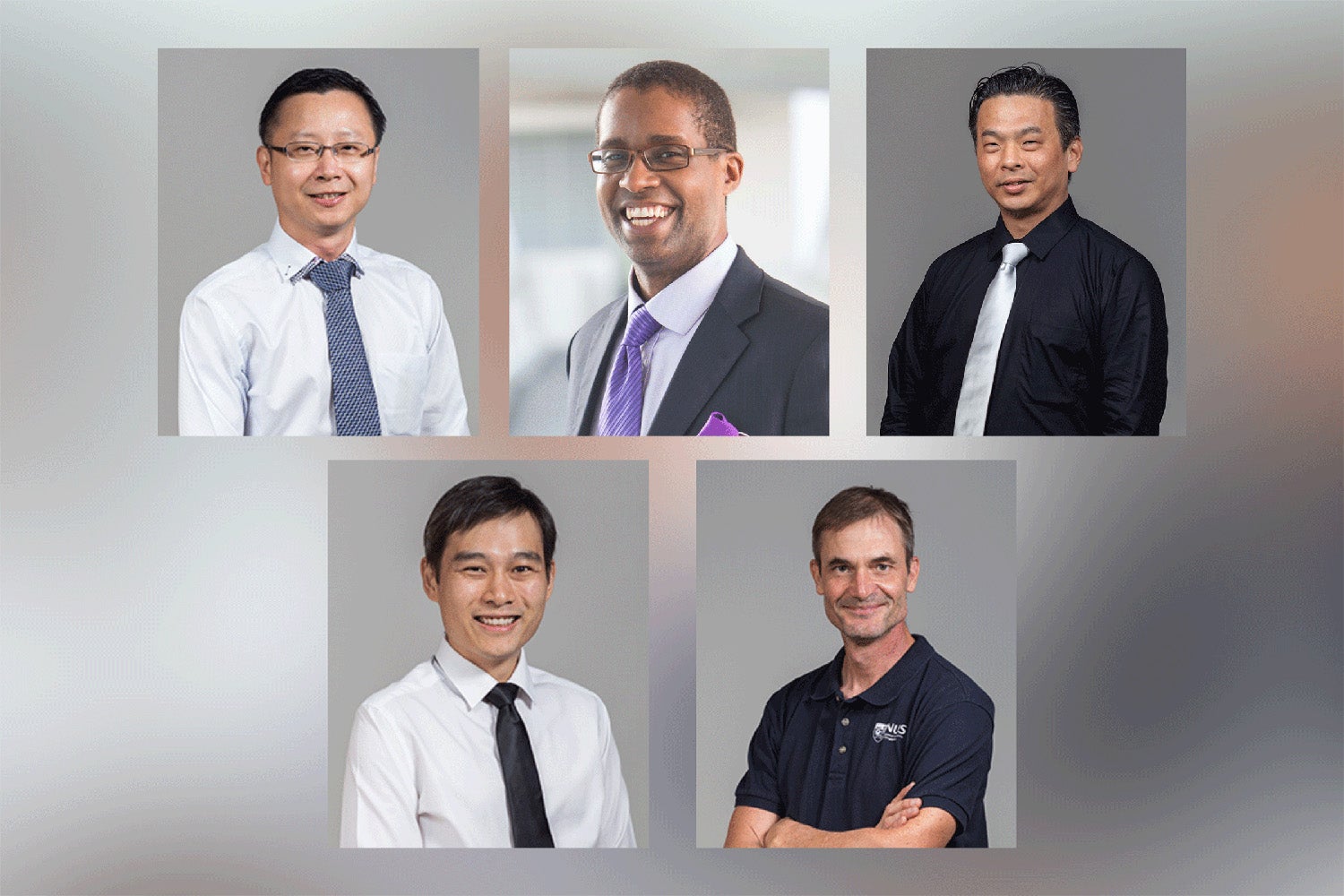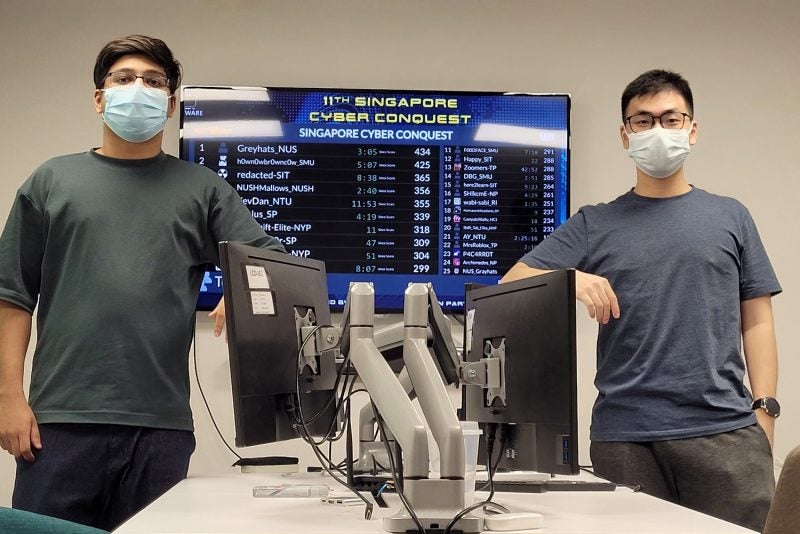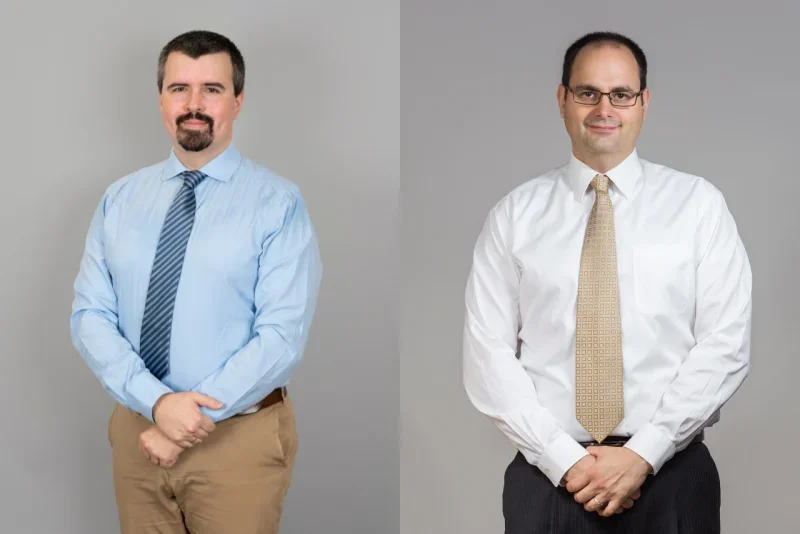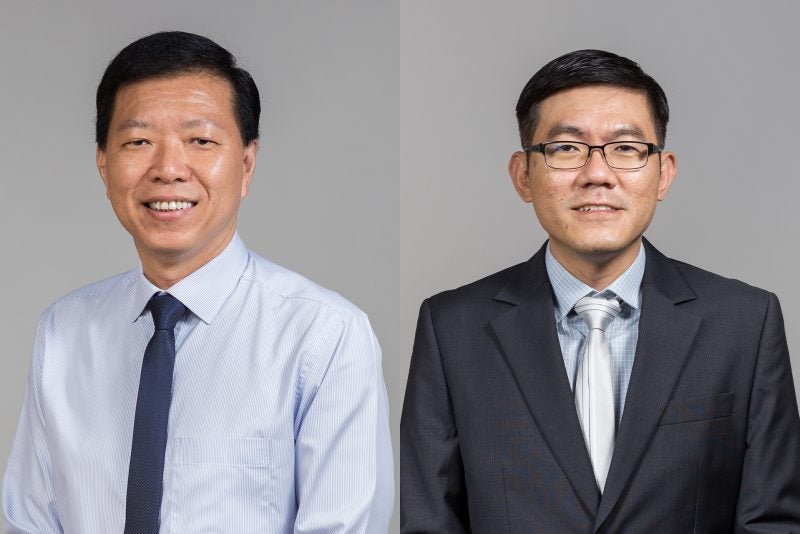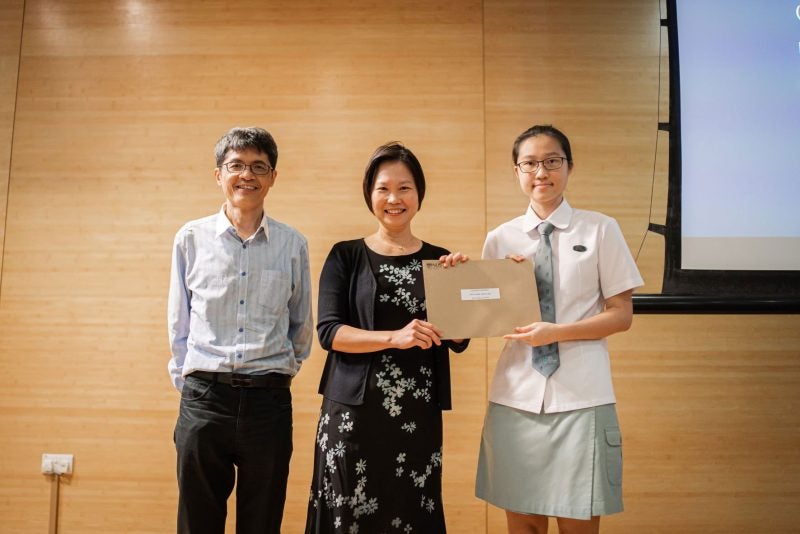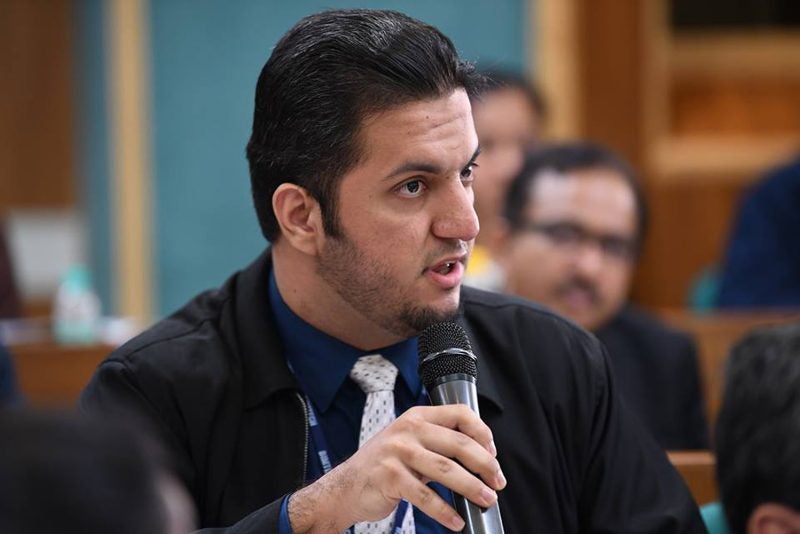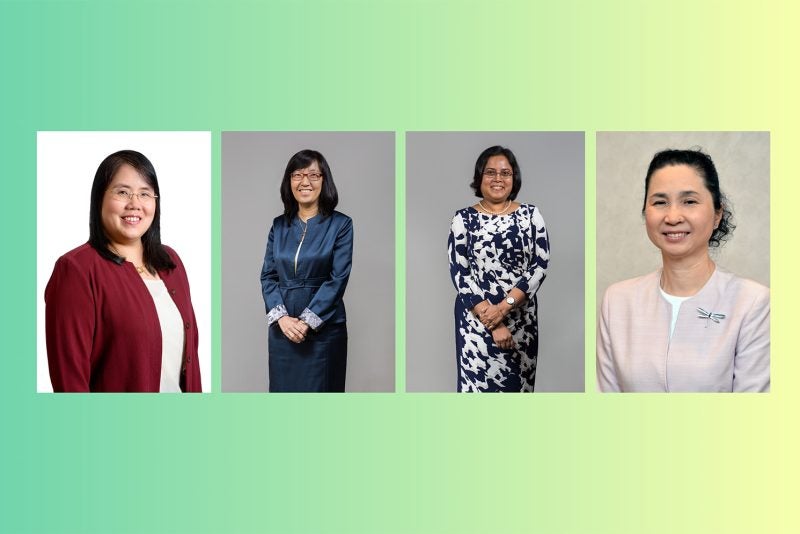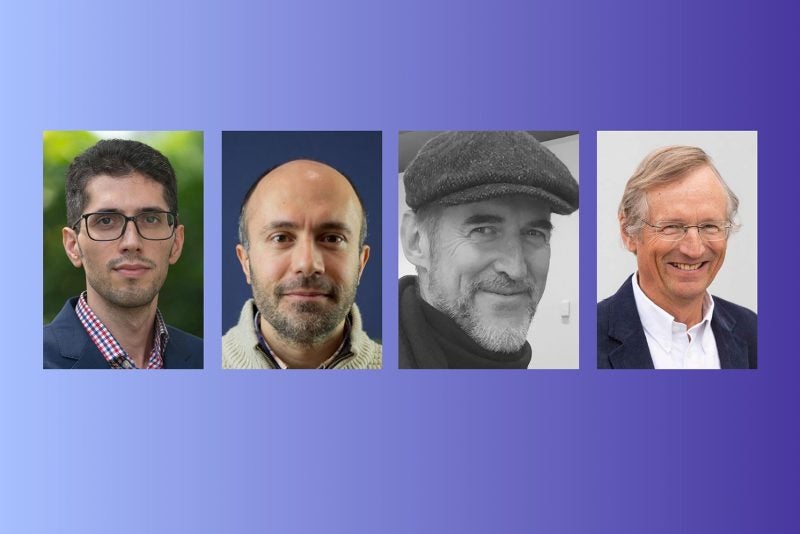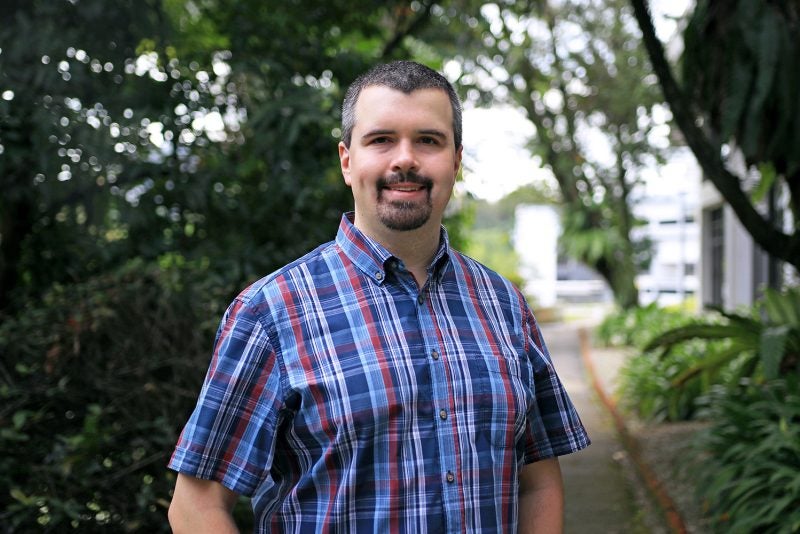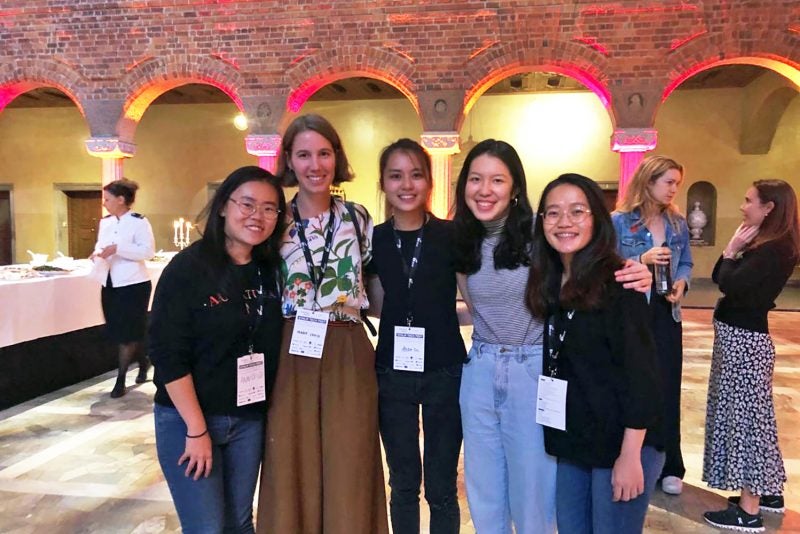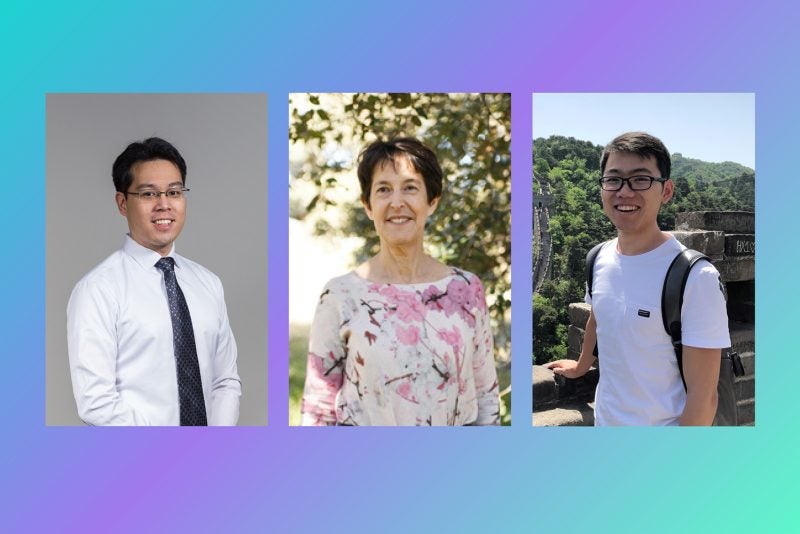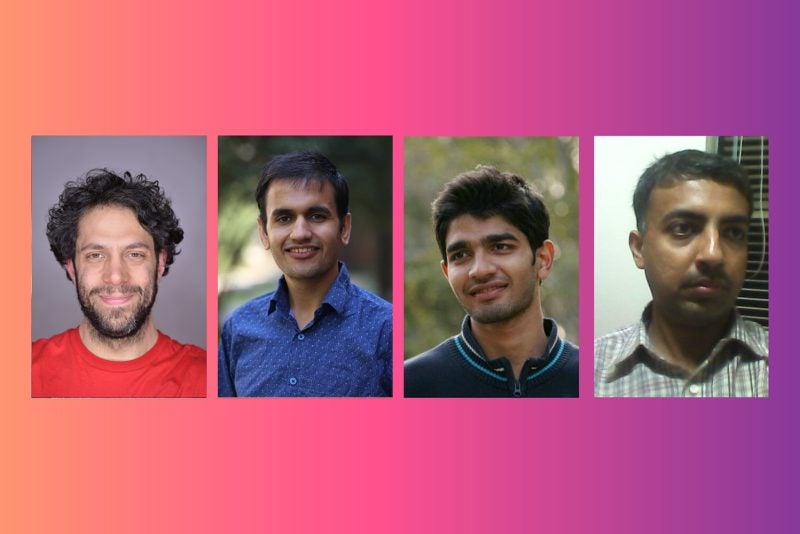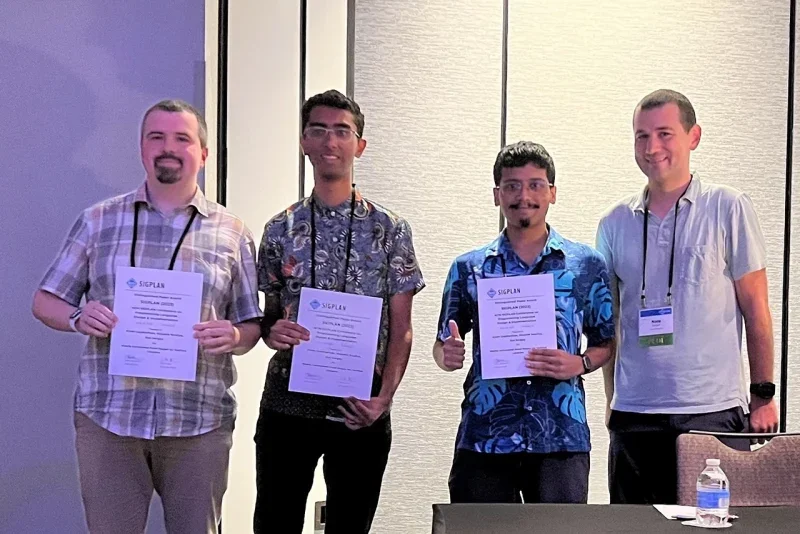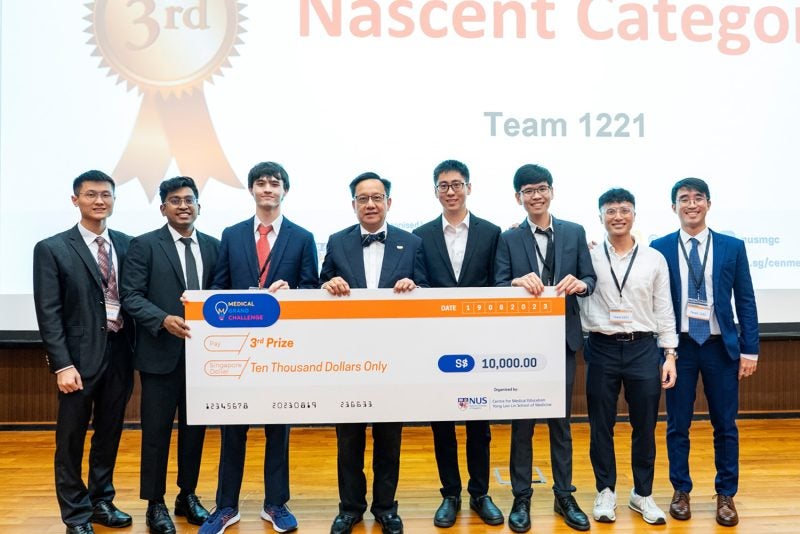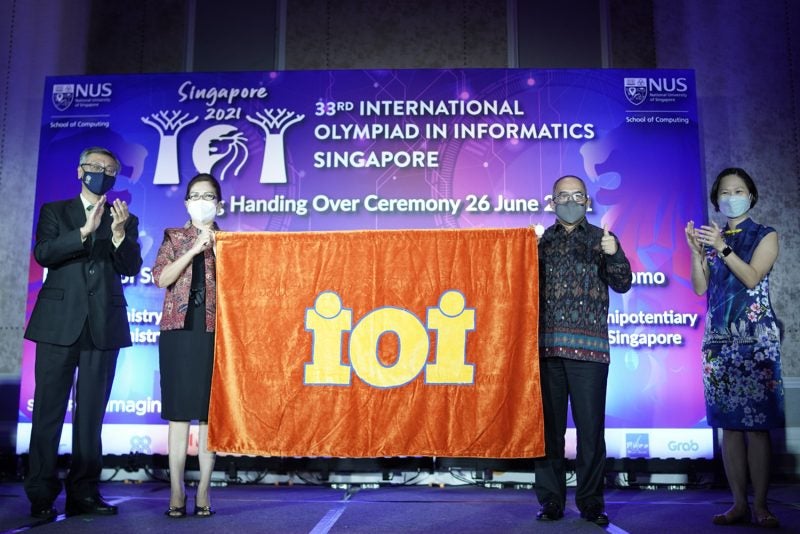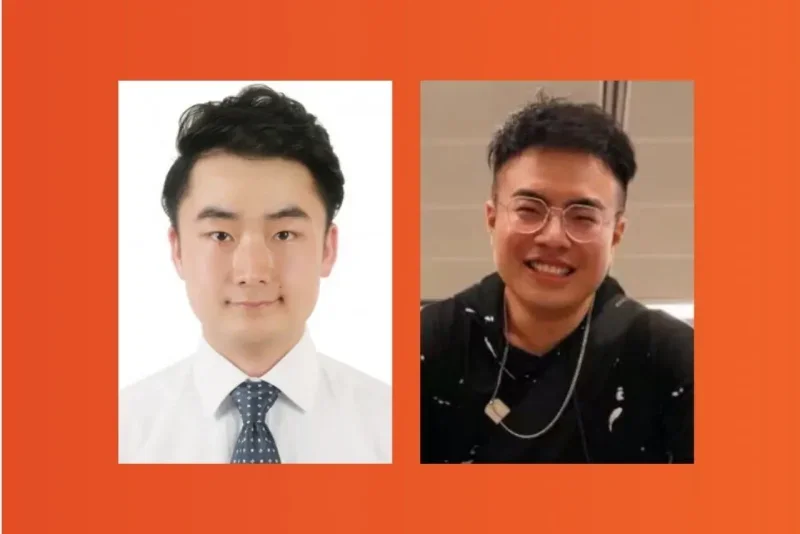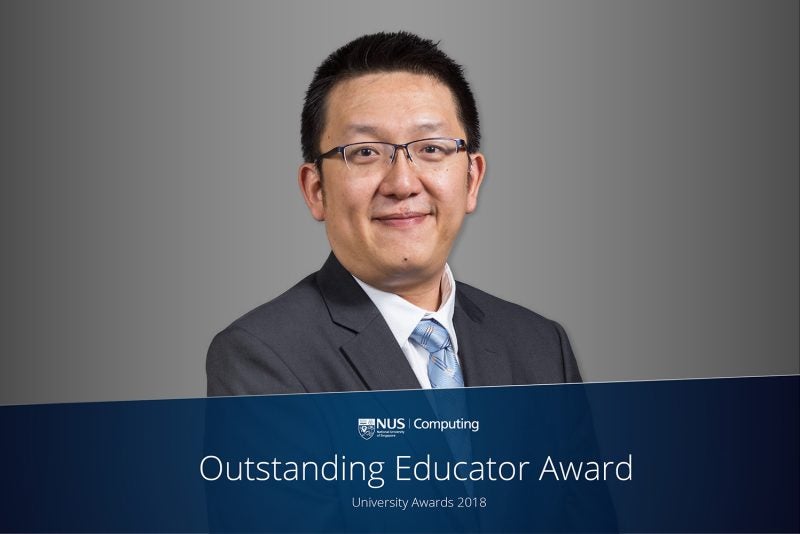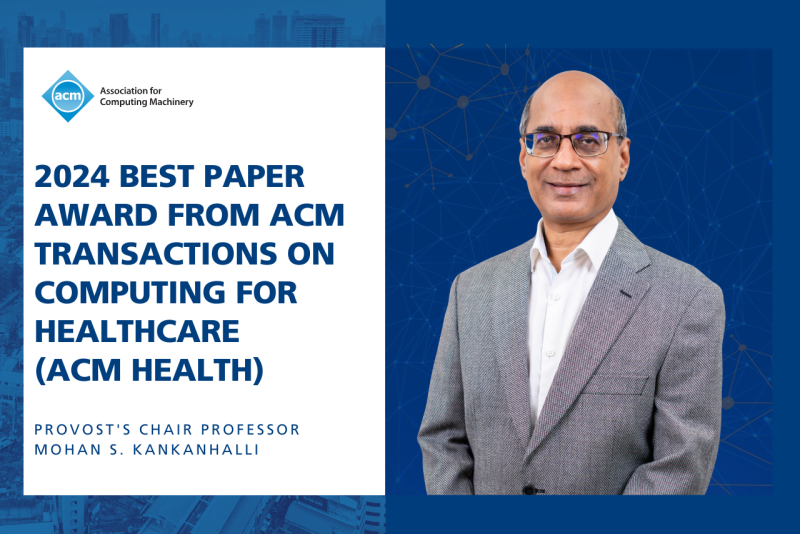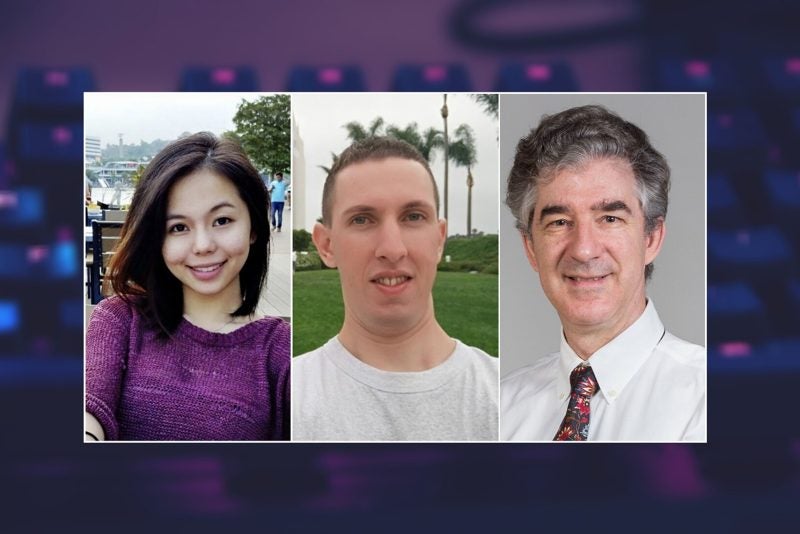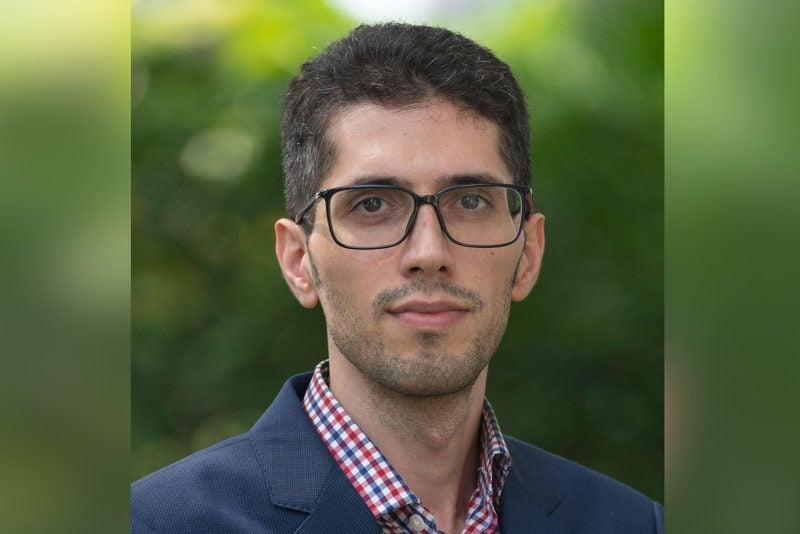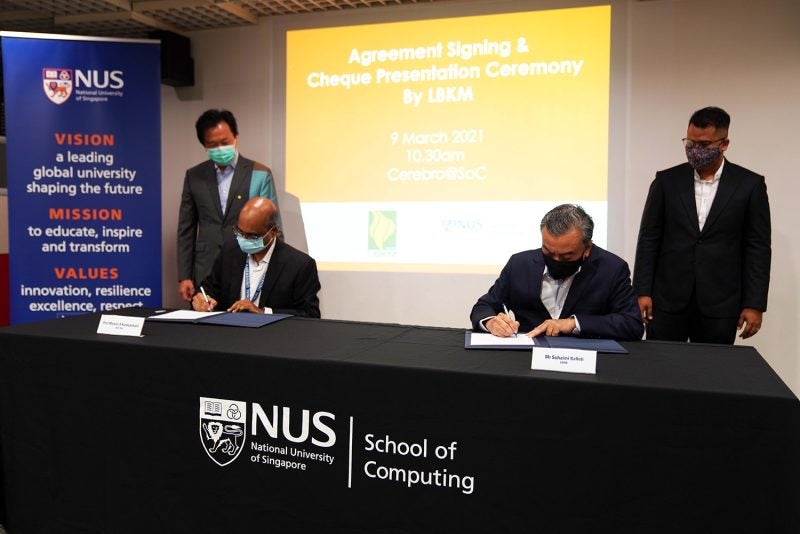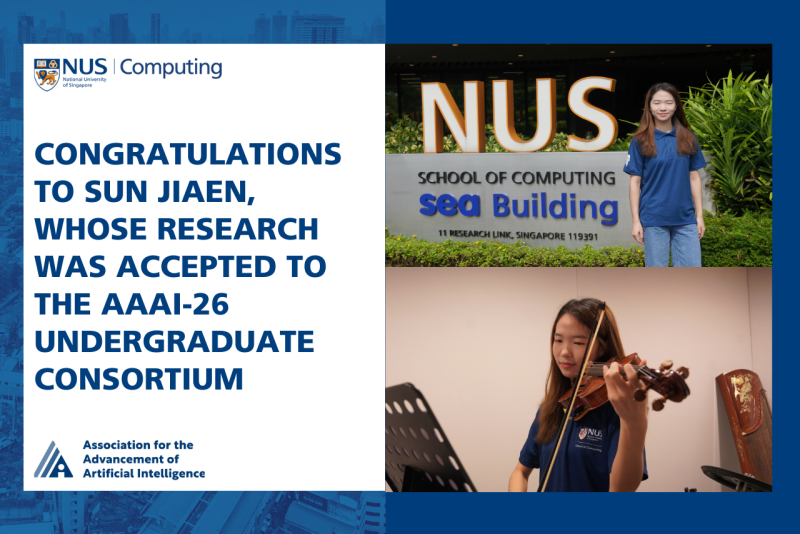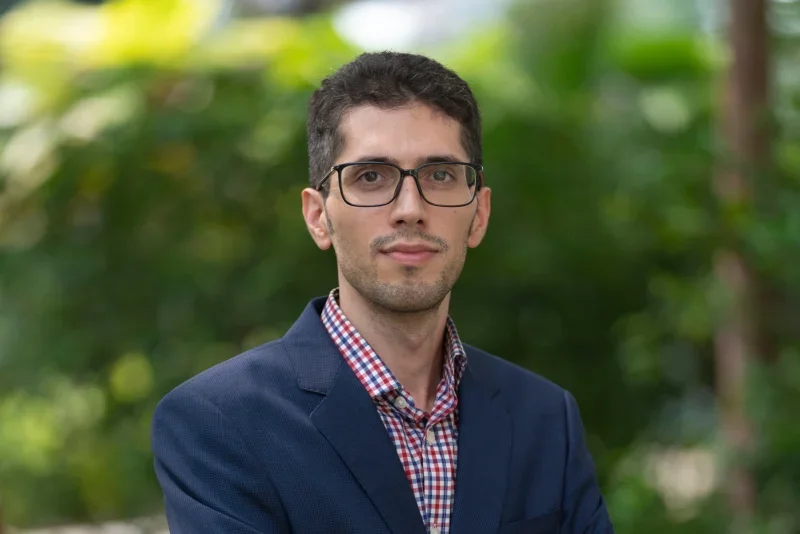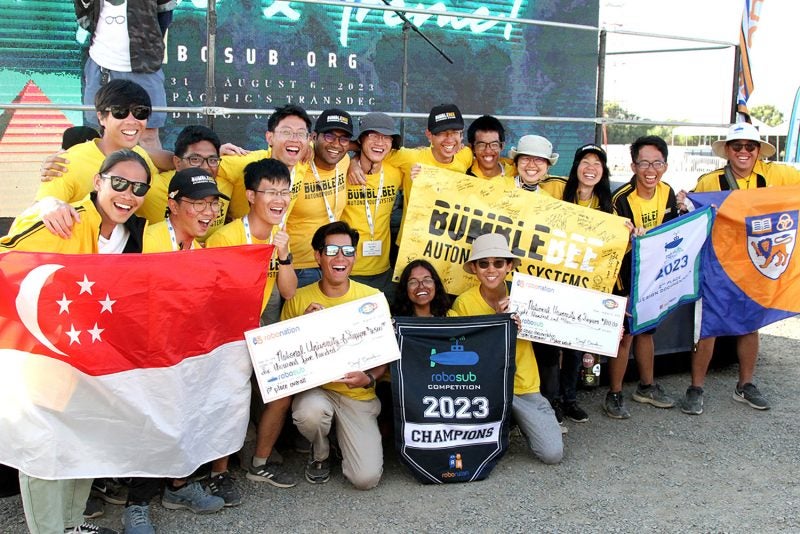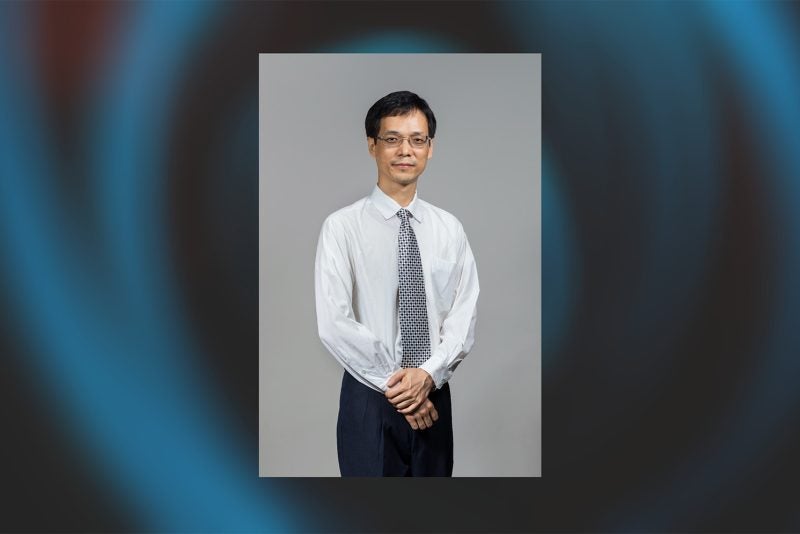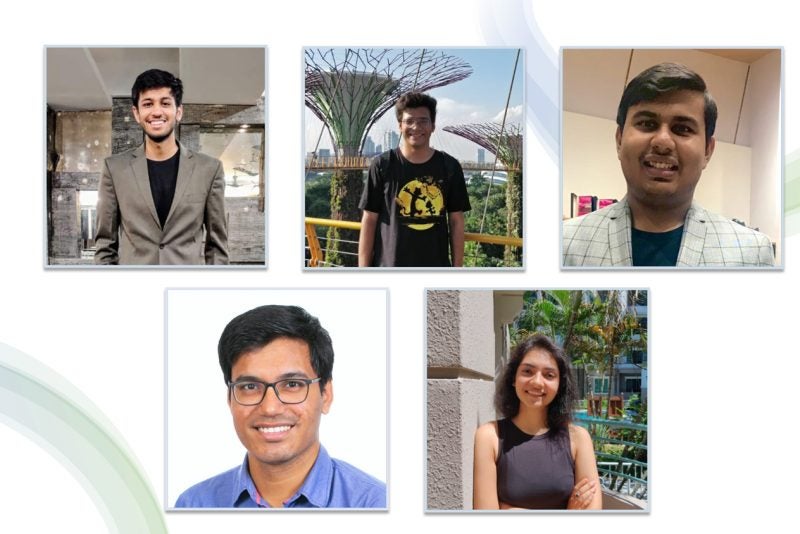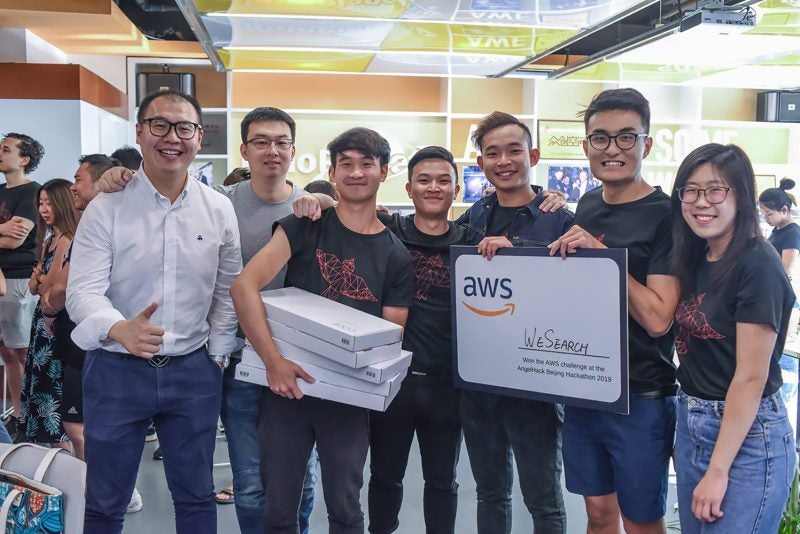16 August 2021 – Five NUS Computing professors won teaching awards conferred by the NUS Centre for Development of Teaching and Learning for the Academic Year (AY) 2019/2020.
Assistant Professor Harold Soh, along with Associate Professors Keith Carter, Heng Cheng Suang and Tan Wee Kek won the Annual Teaching Excellence Award (ATEA), while Associate Professor Martin Henz and his team jointly won the Annual Digital Education Award (ADEA).
The ATEA recognises faculty members who have adopted good teaching practices, in areas such as instruction, educational design, and assessment, while the ADEA is awarded to those who have developed innovative ways to incorporate technology into teaching.
Learning through time and space
When computer science freshmen first enter NUS Computing, they begin their learning journey not as students, but space cadets in the Source Academy – an immersive virtual world where they learn programming concepts through embarking on intergalactic adventures.
These space missions form most of the students’ coursework in the compulsory module, CS1101S Programming Methodology, taught by Associate Professor Martin Henz from the Department of Computer Science.
The Source Academy was initially developed by a 24-member team led by A/P Henz, which includes CS1101S course lecturers Low Kok Lim and Boyd Anderson, as well as Computer Science students and alumni. The team was awarded the ADEA 2021 for their work.
It wasn’t the easiest journey to bring the Source Academy to life, as A/P Henz recounted: “I remember quite vividly, it was mid-2018 – and despite being under immense time pressure, the initial student team managed to create a unique storyline and system that served as a solid starting point for what the Source Academy is today.”
The development of the Source Academy is not limited to the initial team – new students can contribute by using their newly-acquired software skills to improve and expand the system.
“The Source Academy has benefited from several rounds of this ongoing cycle, in which everyone is continuously learning. Senior students use their programming skills picked up from the course to improve the system, which teaches their juniors those same skills,” said A/P Henz.
The community behind the Source Academy has now expanded to a 145-member group of students and alumni.
The work done by the Source Academy community is greatly supported by from the worldwide open-source software community, said A/P Henz, with all tools used in the system being open-source and contributed by thousands of volunteers and companies around the world.
“Without open-source software and open standards, the Source Academy would be unthinkable. We are trying to give back to this community by publishing all our work under the free software licenses Apache 2.0, the GNU General Public License, and a Creative Commons License,” he added.
It’s the little things that help
For Assistant Professor Harold Soh from the Department of Computer Science, it’s often the little things that help enhance student learning.
“It can be an interesting problem, a ‘story-arc’ that brings certain elements together, or a small meme thrown in to lighten the mood,” said Dr Soh, who is a first-time winner of the ATEA.
He added: “Or, it can also be hours of behind-the-scenes testing to weed out bugs.”
Teaching hasn’t been the easiest journey, however, said Dr Soh, as there have been many ups and downs over the years – especially in the past year, with the COVID-19 pandemic.
“The past year has been challenging for almost every teacher I know, not to mention their students. There are new norms to develop and adhere to, whilst trying to ensure the level of education remains high,” he said.
Despite the challenges, for Dr Soh, teaching has always been (and remains) a very rewarding experience.
“The opportunity to engage with students is a major perk of academic life,” said Dr Soh, “I enjoy thinking of, and testing ways to improve student learning, and try to bring out the best in my students.”
“Plus, I enjoy the material I’m teaching, and I hope that comes across,” he added.
For Dr Soh, this award really belongs to an army of people that have supported him along the way.
“Other than my very understanding spouse, the school has been extremely supportive – from the faculty members who generously shared their advice and teaching materials. I’ve also been fortunate to work with excellent teaching assistants both at the undergraduate and graduate levels, and am frequently amazed by their level of dedication and professionalism,” he said.
He added: “And of course, the students in my courses have been fantastic at helping me learn how to be better at teaching. It’s the whole that makes education at NUS Computing an exceptional experience.”
Education is a two-way process
This is the fourth time Associate Professor Heng Cheng Suang, from the Department of Information Systems and Analytics, has won the ATEA – but his feelings towards winning the award remain the same.
“I am always thankful,” said A/P Heng, “As every batch of students are unique, I can never tell how the teaching and learning experience or interactions will turn out, and this gives me the chance to learn from every different batch.”
“Teaching and learning is a two-way process – every lesson is a learning opportunity for both the students as well as the professor. The questions the students ask push me to think of better ways to enhance my teaching materials and pedagogy,” he added.
A/P Heng placed in the ATEA Honour Roll in 2014, after winning the award three times in AYs 2010/2011, 2011/2012, and 2012/2013.
While he has many years of teaching experience under his belt, last year was particularly challenging – due to restrictions brought about by the pandemic.
“Everyone was grappling with online teaching and learning, as well as managing the final assessment, which was also moved online,” he recounted.
That created a problem, as A/P Heng’s final assessment contained multiple choice questions that are more susceptible to plagiarism in the online format.
Taking that in mind, he thought of a way to circumvent this problem – and settled on replacing all the multiple choice questions with just one open-ended question.
“While the question was unexpected, the students were pleasantly surprised as it really challenged their creativity, as well as their understanding of the entire course,” said A/P Heng.
Teaching principles to live by
Outside of the course material, Associate Professor (Practice) Keith Carter aims to impart to students principles from Jack Welch, the former Chief Executive Officer of General Electric: Energy, Energise, Edge, Execute, and Passion.
“I hope that they would have energy – to go through good and bad times with healthy vigor, and an upbeat attitude. Also, to be able to energise others with their positive energy, have the edge to make tough decisions when needed, and execute them with passion,” said A/P Carter, who is also the Director of the NUS FinTech Lab.
A first-time winner of the ATEA, the Department of Information Systems and Analytics professor cited the benefits of receiving feedback from students, despite it being difficult to find ways to adjust future classes accordingly.
“The students can be very candid, but their directness helps a lot!” said A/P Carter.
Other than the students, there were also many others who helped him along the way, to which he expressed his gratitude.
“I would like to thank Dr Sharon Tan, Prof Alex Siow, as well as Profs Teo Hock Hai, Tan Chuan Hoo, and Hahn Jungpil for their teaching advice. I am also grateful to Profs Teo Chung Piaw and Francesco Mancini, as well as my wife and children for their support and patience, plus the NUS FinTech lab team – Shashank, Reshma, Meria, and Getty,” said A/P Carter.
Teaching award veteran
Associate Professor Tan Wee Kek from the Department of Information Systems and Analytics is no stranger to the ATEA – he placed on the Honour Roll in 2013 after winning the award consecutively from AY 2009 to AY 2012.
A fellow of the NUS Teaching Academy, A/P Tan also won the ATEA for AY 2018/2019.
An Assistant Dean for Student Life at NUS Computing, he is also one of the faculty advisors of the NUS Students’ Computing Club, and the lead faculty advisor of the NUS BiZiT Society.

